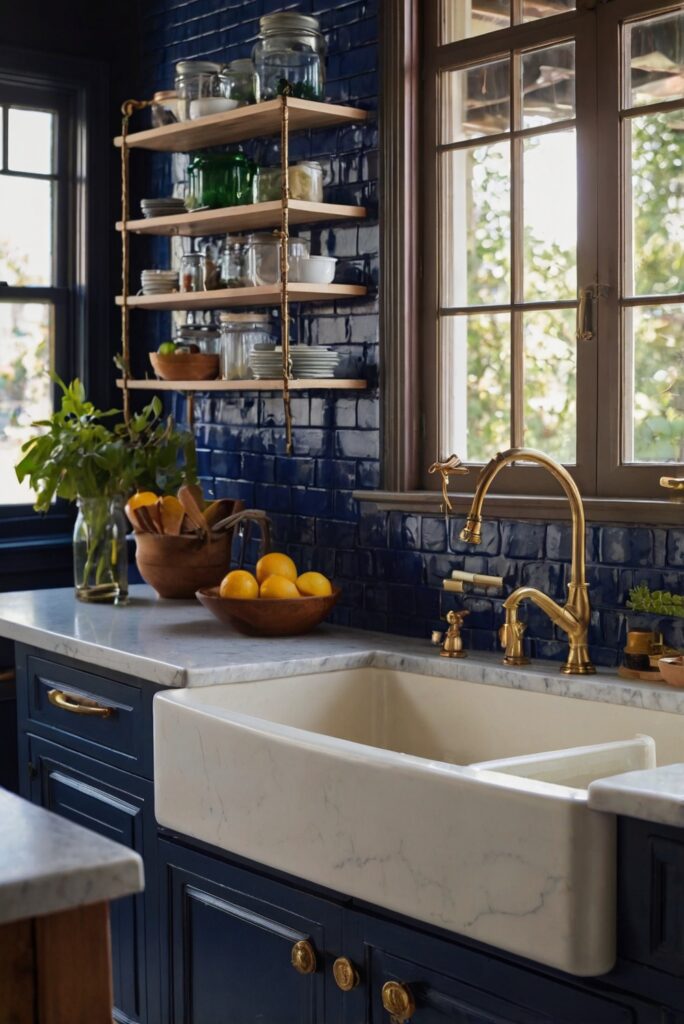Discover essential tips for selecting the ideal material thickness for your kitchen sink. Learn how to enhance your space with the perfect design.
How to Choose the Right Material Thickness for Your Kitchen Sink?
**Answer:**
When selecting the material thickness for your kitchen sink, it is important to consider the durability and aesthetics. Thicker materials like stainless steel or granite are more durable and less prone to damage from heavy pots and pans. However, they can be heavier and may require extra support. Thinner materials like acrylic or porcelain are lightweight but may be more prone to scratches and dents. Consider the usage of your sink and choose a material thickness that best suits your needs. Don’t forget to factor in maintenance requirements and budget constraints when making your decision.
What factors should you consider when choosing the material thickness for your kitchen sink?
When selecting the material thickness for your kitchen sink, it is crucial to consider several factors to ensure durability and functionality. The primary factors to consider include the type of material, sink configuration, usage frequency, and budget constraints. Different materials such as stainless steel, cast iron, composite granite, and porcelain have varying thickness options available, each with its own set of pros and cons. The sink configuration, whether it is top mount, under-mount, or farmhouse style, can also influence the ideal thickness. Additionally, the frequency of use and the type of usage, such as heavy-duty cooking or light washing, will determine the required thickness to withstand daily wear and tear. Lastly, your budget will play a significant role in determining the material thickness that fits within your financial constraints.
Why is material thickness important for the durability of your kitchen sink?
The material thickness of your kitchen sink is crucial for its durability and longevity. A thicker material provides greater strength and resistance to dents, scratches, and damage from heavy pots and pans. Thicker materials also reduce noise and vibration, making the sink more stable and quiet during use. The thickness of the material directly impacts the overall quality and performance of the sink, ensuring that it can withstand the rigors of daily kitchen activities without premature wear or damage. Investing in a sink with the appropriate material thickness will save you money in the long run by reducing the need for frequent repairs or replacements.
How does the material thickness affect the appearance and aesthetics of your kitchen sink?
The material thickness of your kitchen sink can significantly impact its appearance and aesthetics. Thicker materials tend to have a more substantial and luxurious look, adding a sense of quality and sophistication to your kitchen space. Thicker materials also provide a more robust feel and can enhance the overall design and style of your kitchen. Additionally, certain materials, such as stainless steel, may offer different finish options that can further enhance the visual appeal of the sink. When choosing the material thickness for your kitchen sink, consider how it will complement the existing design elements in your kitchen and contribute to the overall aesthetic appeal of the space.
What are the benefits of choosing a thicker material for your kitchen sink?
Opting for a thicker material for your kitchen sink comes with several benefits that contribute to its durability, functionality, and overall performance. Thicker materials offer increased strength and resistance to dents, scratches, and damage from heavy use, ensuring that the sink maintains its quality and appearance over time. Thicker materials also provide better sound insulation, reducing noise and vibrations during use for a quieter kitchen environment. Additionally, thicker materials can enhance the visual appeal of the sink, adding a sense of luxury and sophistication to your kitchen space. Investing in a thicker material for your kitchen sink is a long-term investment in the durability and aesthetics of your kitchen.
What are the drawbacks of choosing a thinner material for your kitchen sink?
Opting for a thinner material for your kitchen sink may come with certain drawbacks that can affect its durability, performance, and longevity. Thinner materials are more susceptible to dents, scratches, and damage from heavy pots and pans, leading to premature wear and tear. Thinner materials also provide less sound insulation, resulting in a louder and more disruptive kitchen environment during use. Additionally, thinner materials may lack the visual appeal and luxurious feel of thicker materials, impacting the overall aesthetics of your kitchen space. Choosing a thinner material for your kitchen sink may compromise its quality and longevity, requiring more frequent maintenance and repairs in the long run.
Consider the Sink Material:
When choosing the right material thickness for your kitchen sink, the type of material used is crucial. Stainless steel sinks typically range from 16 to 22 gauge, with lower gauge numbers indicating thicker steel. Thicker steel is more durable and less prone to dents and scratches, making it a better choice for high-traffic kitchens.
Understand Your Usage:
The thickness of your sink material should also be based on your usage. If you use the sink frequently and for heavy-duty tasks, opt for a thicker material to ensure longevity and durability. Lighter usage may allow for a thinner gauge.
Consider Soundproofing:
Thicker sink materials tend to be quieter, as they absorb sound better than thinner materials. If noise reduction is important to you, choose a thicker gauge material for your kitchen sink.
Installation Considerations:
When choosing the right material thickness for your kitchen sink, consider the installation process. Thicker materials may require additional support or reinforcement during installation. Make sure your countertop is compatible with the chosen thickness.
Cost vs. Durability:
Thicker sink materials are generally more expensive than thinner ones. Consider your budget and balance it with the durability and longevity you desire in your kitchen sink. Investing in a thicker material may save you money in the long run by reducing the need for repairs or replacements.

